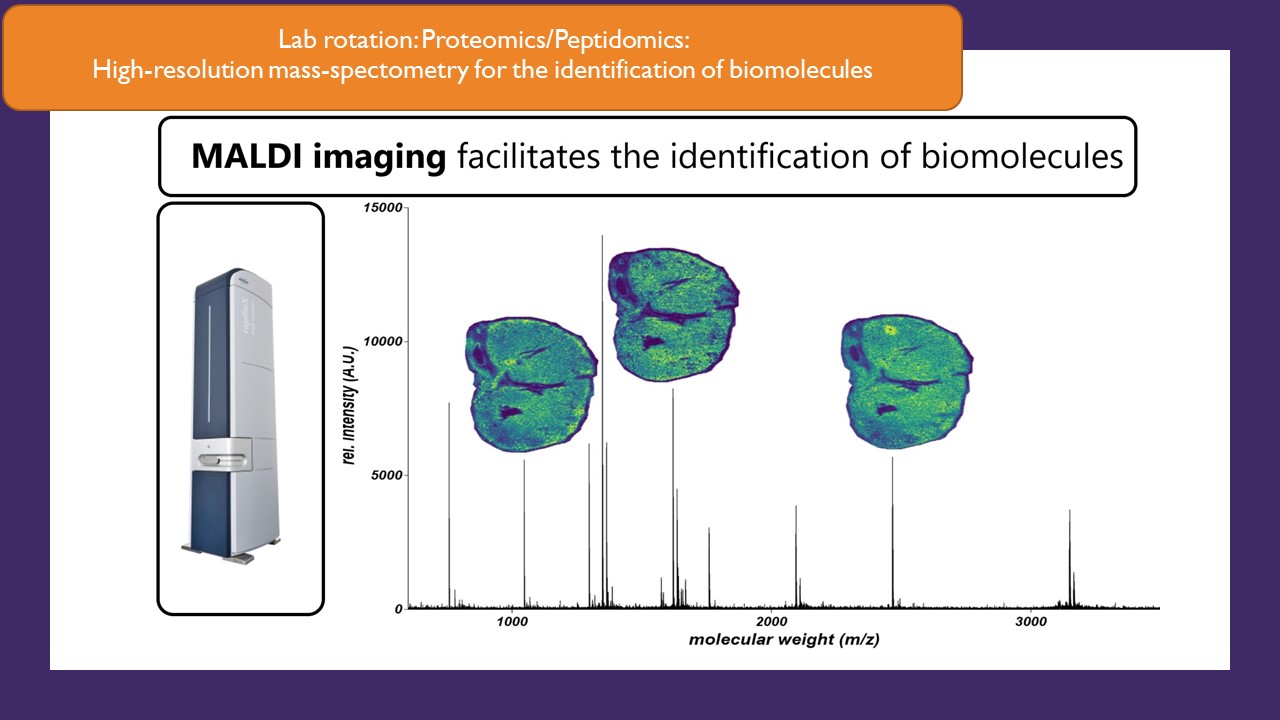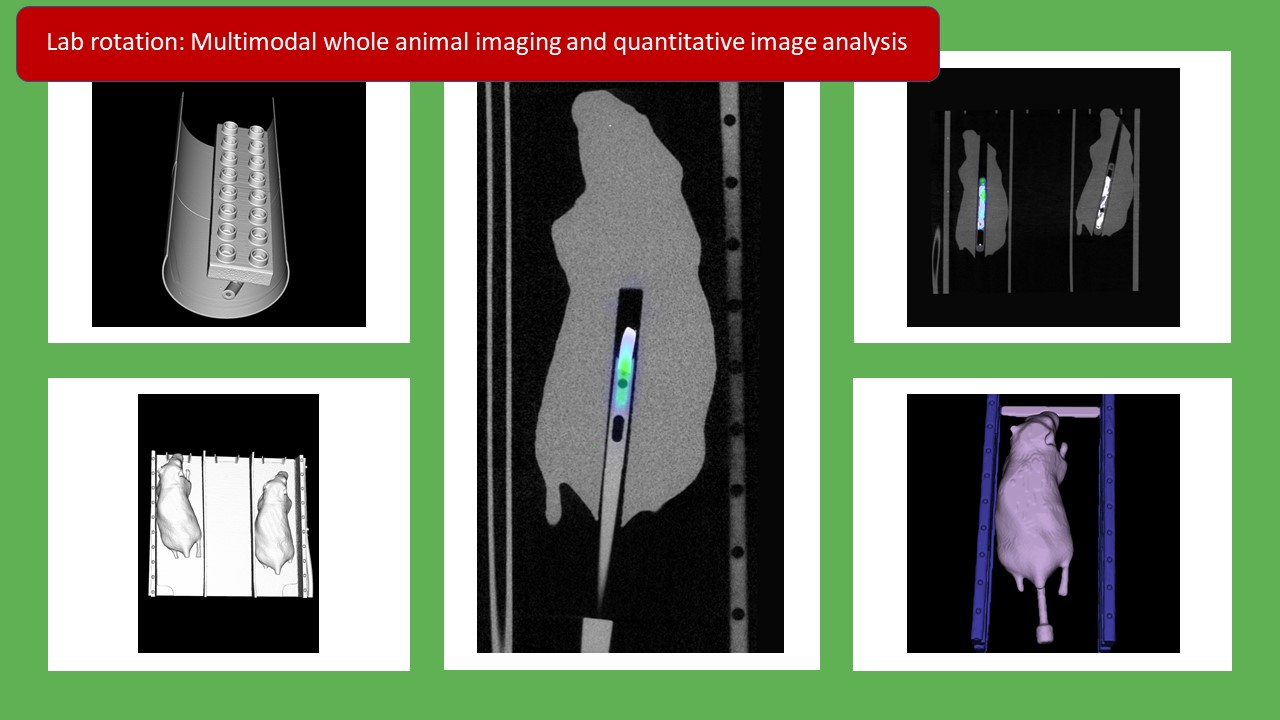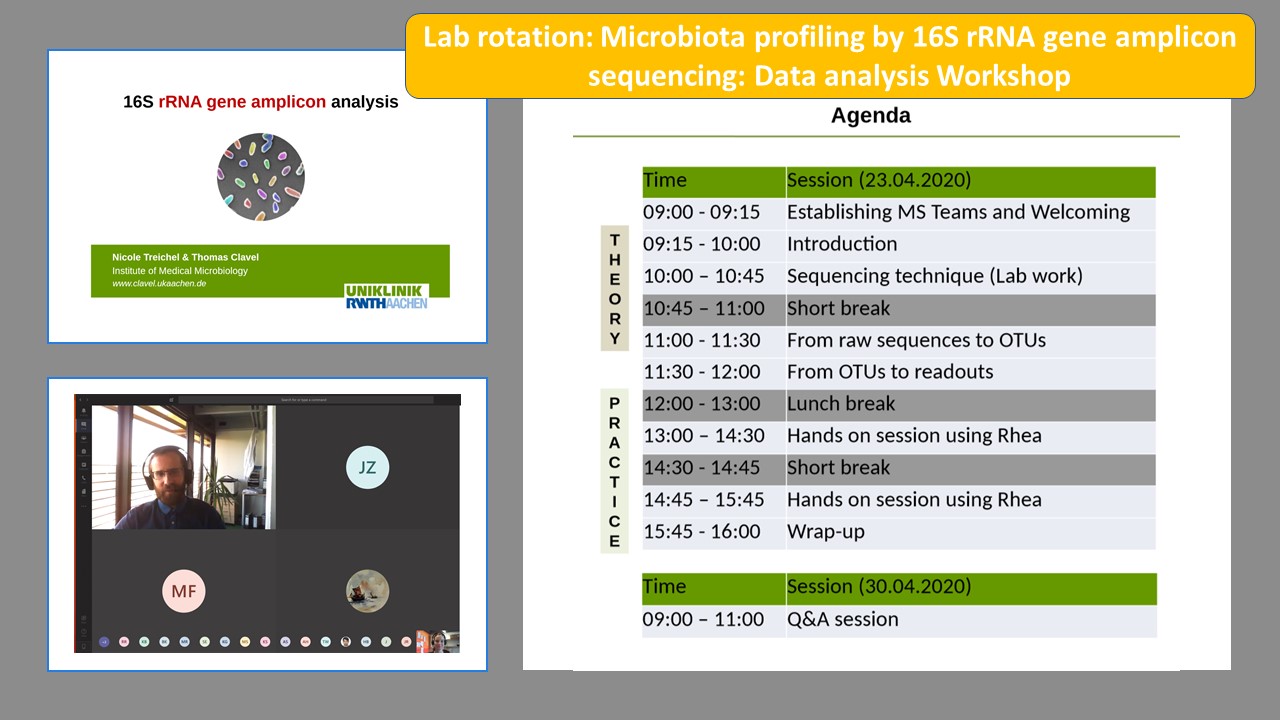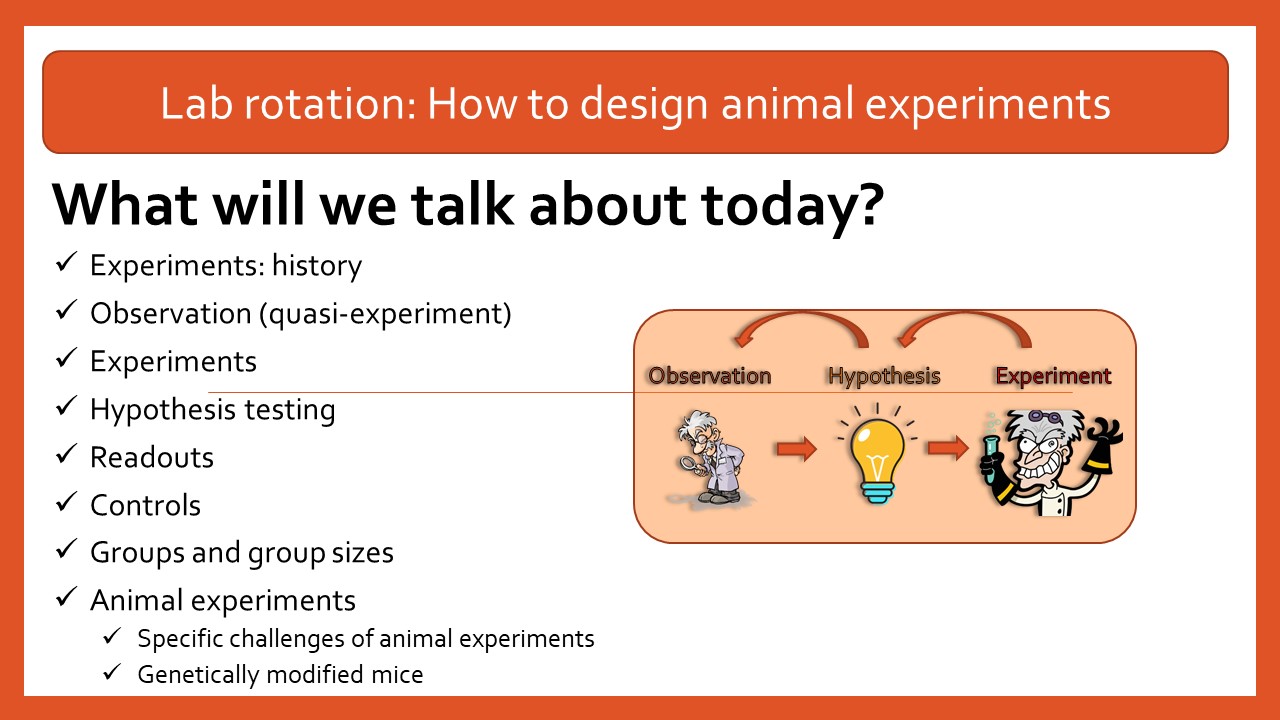Graduate school ‘Gut-Liver Axis’: Laboratory rotations as key elements of the educational programme
Searching for alternative strategies and experimental approaches, it helps to look beyond the boundaries of your own PhD project. Therefore, CRC1382 offers carefully planned and prepared laboratory rotations for all graduate students involved in BMGS ‘Gut-Liver Axis’.
These laboratory rotations offer invaluable insights into the portfolio of laboratory protocols, animal models, interventional procedures, high-end analytical equipment, as well as state-of the art visualization and data modelling approaches that are established and available within CRC1382.
Four rotations could be realized in the first half of 2020:
- Proteomics/Peptidomics: High-resolution mass-spectometry for the identification of biomolecules
- Multimodal whole animal imaging and quantitative image analysis
- Microbiota profiling by 16S rRNA gene amplicon sequencing: Data analysis Workshop
- Designing animal experiments
While the first two courses could take place in the laboratory as planned, the next two courses scheduled for April and May had to be adapted to an online format due the Corona Pandemics.
Proteomics/Peptidomics: High-resolution mass-spectometry for the identification of biomolecules
This practical course offered by project A04 provided an overview into the different applications of mass spectrometry with a focus on sample preparation, analysis of post-translational modifications and MALDI Imaging. Possible applications of mass spectrometry in the PhD projects of the participating students have been discussed.
Multimodal whole animal imaging and quantitative image analysis
This course was offered by core project Q01. Following an introduction into the techniques multimodal CT-FLT-BLT scans were performed on phantom probes and the multimodal images were analyzed. These experiences should enable the participating students to adequately plan their own experiments.
Microbiota profiling by 16S rRNA gene amplicon sequencing: Data analysis Workshop
This online course was offered by core project Q02 via MS-Teams. After familiarizing themselves with the still unaccustomed online format the 21 participants, from Master students to PIs, gained substantial knowledge on how to analyze 16S rRNA gene amplicon sequencing data. A Q&A session one week after the course helped to discuss problems the students encountered when analyzing their own data sets.
Designing animal experiments
Animal experiments are fundamental in many PhD projects within CRC1382. This one-day course offered by project B03 covered two broad areas: wise design of experiments in general and mouse (animal) experiments in particular.




